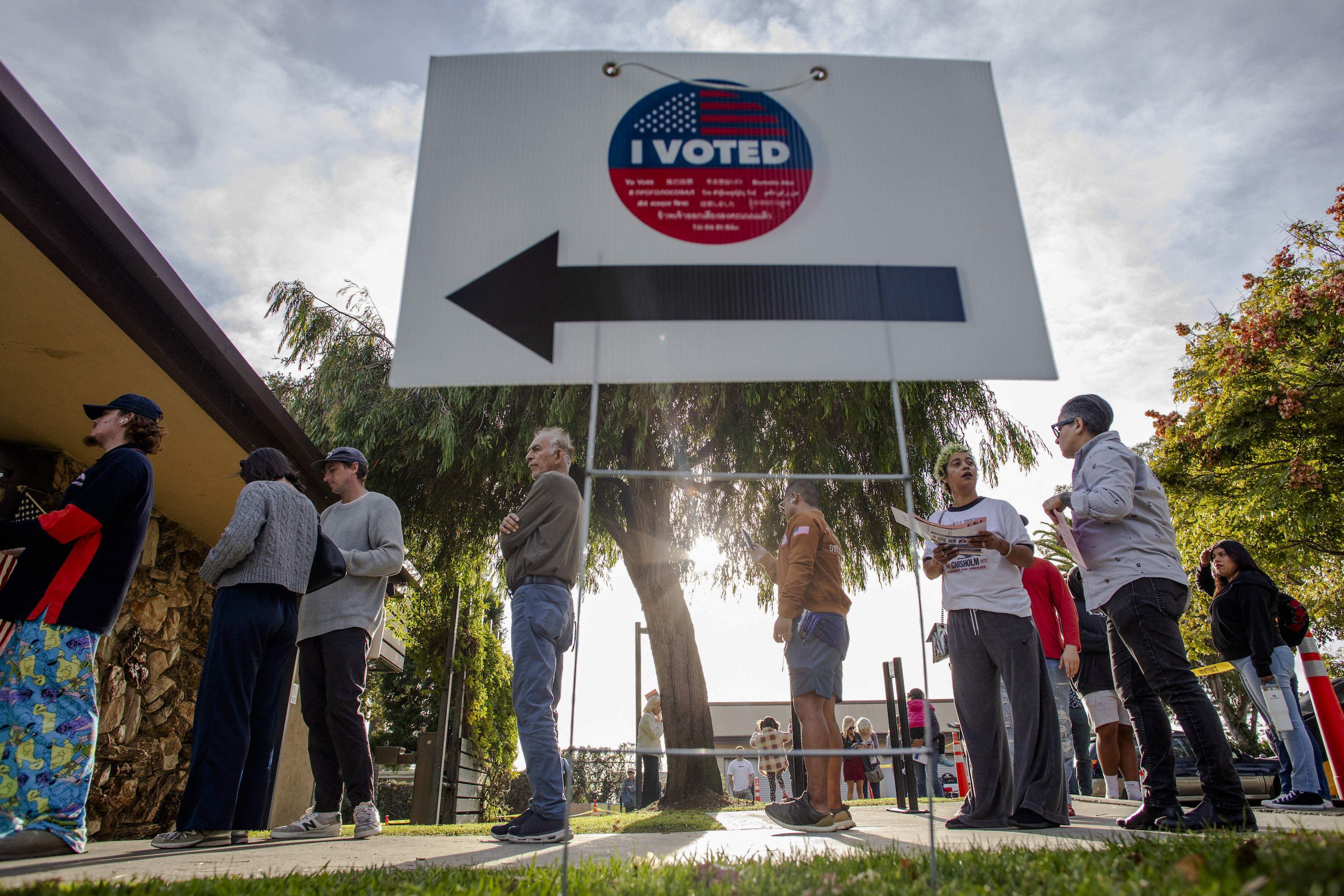The California Supreme Court ruled on Nov. 15 to toss out the state’s lawsuit against Huntington Beach’s voter ID law, but the state attorney general is expected to continue fighting it.
“Honestly, it’s a great victory for Huntington Beach, and as I’ve said, I think it’s a black eye to the state,” City Attorney Michael Gates told The Epoch Times on Nov. 18.
The state could refile the lawsuit within 20 days, but Gates confirmed on Nov. 18 that the city is “moving forward with the voter ID program.”
The state’s Supreme Court dismissed a lawsuit brought in April by Attorney General Rob Bonta and California Secretary of State Shirley Weber. The lawsuit alleged that the Huntington Beach law passed by voters in March requiring voter ID starting in 2026 violated state election law.
Bonta and Weber also said it conflicted with a state law introduced by state Sen. Dave Min that banned local governments from requiring voter identification in elections.
Min, who won the election to replace U.S. Rep. Katie Porter, introduced the law in February after the state threatened legal action against the city. Gov. Gavin Newsom signed it into law on Sept. 29.
Huntington Beach’s request for the court’s dismissal was granted after justices considered the case on Nov. 14.
“The Court finds that this matter is not ripe for adjudication, as ... the City’s Charter is permissive and discretionary in character, and thus currently presents no conflict with state elections law,” the state Supreme Court justices wrote in the order.
The Orange County city, located on the coast about 40 miles south of Los Angeles, is home to about 192,000 residents.
Huntington Beach’s voter ID requirement was an amendment to the city’s charter that voters approved on March 5. The amendment defines voters as citizens of the United States who are residents of Huntington Beach and at least 18 years old.
It also states that if a conflict between the city’s charter and California’s election code arises, the city’s charter “shall prevail.”

(L-R) Huntington Beach Mayor Tony Strickland, City Attorney Michael Gates, and Councilman Casey McKeon gather with residents to challenge state housing laws in Huntington Beach, Calif., on Feb. 14, 2023. (John Fredricks/The Epoch Times)
Bonta and Weber issued a joint letter to the Huntington Beach City Council in September 2023, urging it to reconsider the voter ID amendment and threatening to fight it before the measure was placed on the ballot.
“If the City moves forward and places it on the ballot, we stand ready to take appropriate action to ensure that voters’ rights are protected and state laws are enforced,” they wrote in the letter.
Although Bonta included the new state law in arguments to the Supreme Court, the court didn’t see a conflict, according to the city attorney.
The California Constitution states that charter cities have local jurisdiction over local elections, Gates said.
“We’re invoking our constitutional right,” he said.
Huntington Beach became a charter city in 1937, according to the city. It decided to adopt a charter to ensure that the state did not interfere with the city’s affairs or intrude on its oil revenue.
Bonta claimed in a statement issued on Nov. 17 that existing law prohibited cities from implementing voter ID. He said that the court would eventually side with the state.

California Attorney General Rob Bonta speaks in Los Angeles on April 15, 2024. (John Fredricks/The Epoch Times)
Bonta asserts in the state lawsuit that under existing state law and Min’s Senate Bill 1174, all local governments—including charter cities such as Huntington Beach—are prohibited from implementing voter ID requirements and local laws that conflict with state laws governing a “statewide concern,” he said in the statement.
“Let me be clear: that has not changed,“ he said. ”We disagree with the court’s decision that it is too early to bring our lawsuit and remain confident in the strength of our case.”
The decision allows the state to file an amended lawsuit within 20 days. Bonta’s office did not return a request for comment on Nov. 18 about whether he planned to refile it.
The city doesn’t plan to back down, according to a statement by Huntington Beach Mayor Gracey Van Der Mark posted on Facebook on Nov. 15.
“This is a great day for our City—we have not only successfully defended our City’s Voter ID law but also the rights of our residents from attacks by Governor Newsom and the State,“ Van Der Mark said. ”We will not back down and will continue to fight for the City.”














